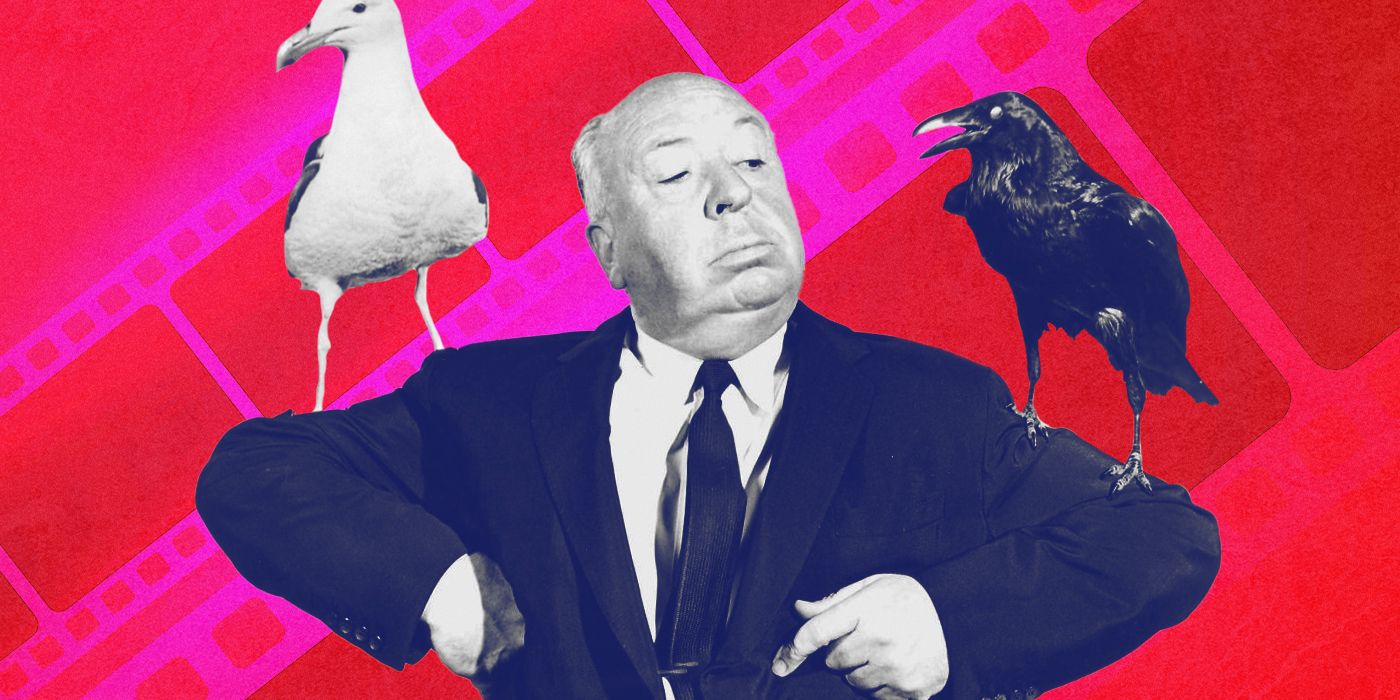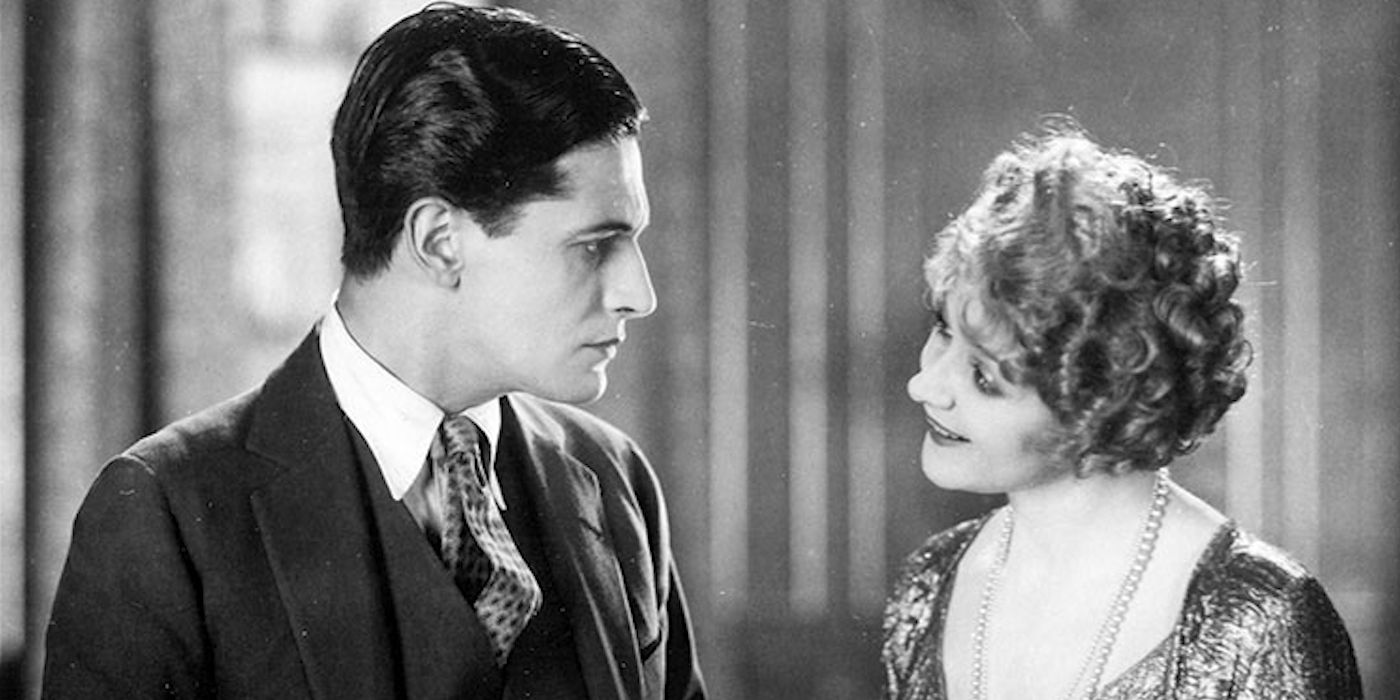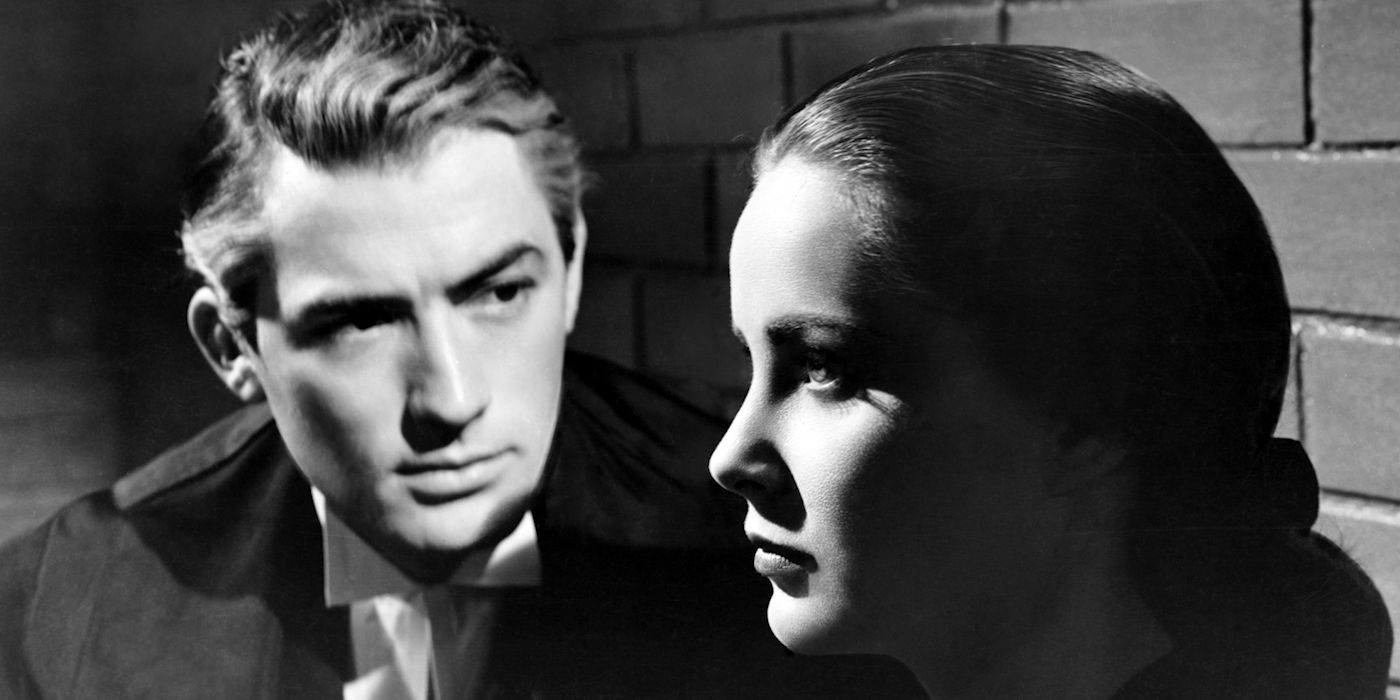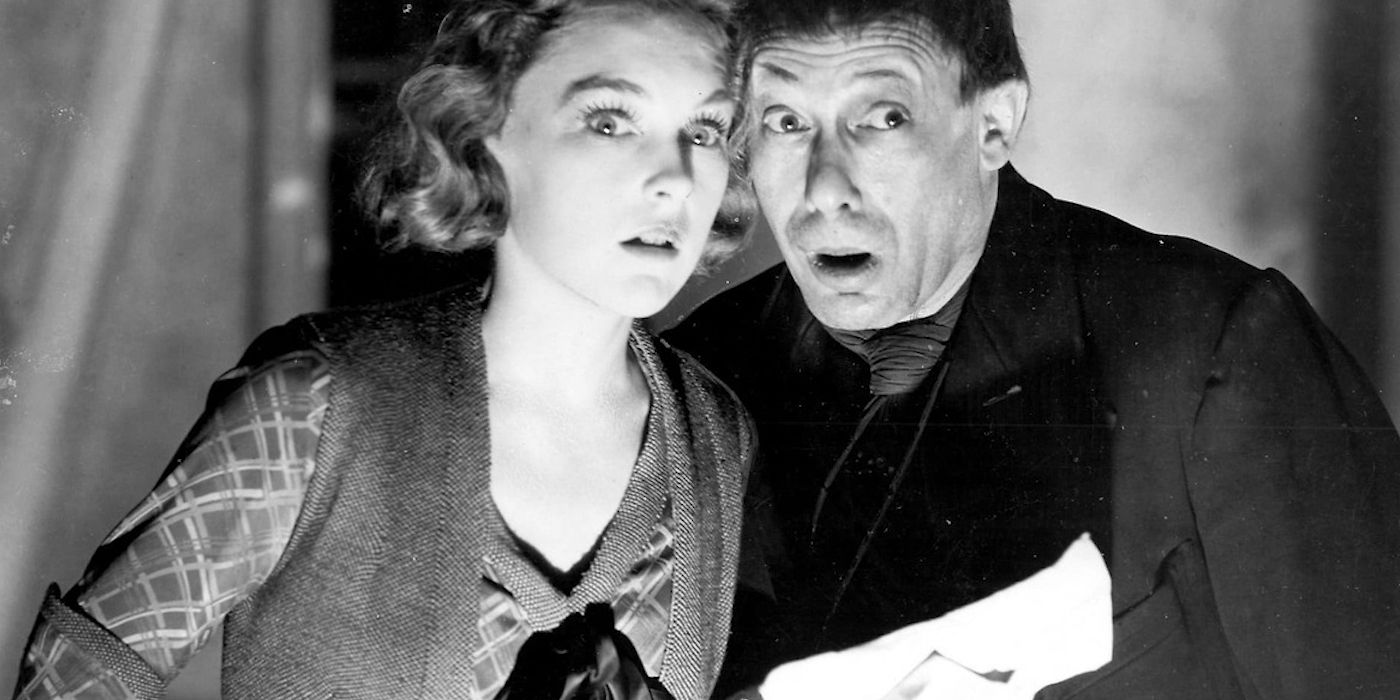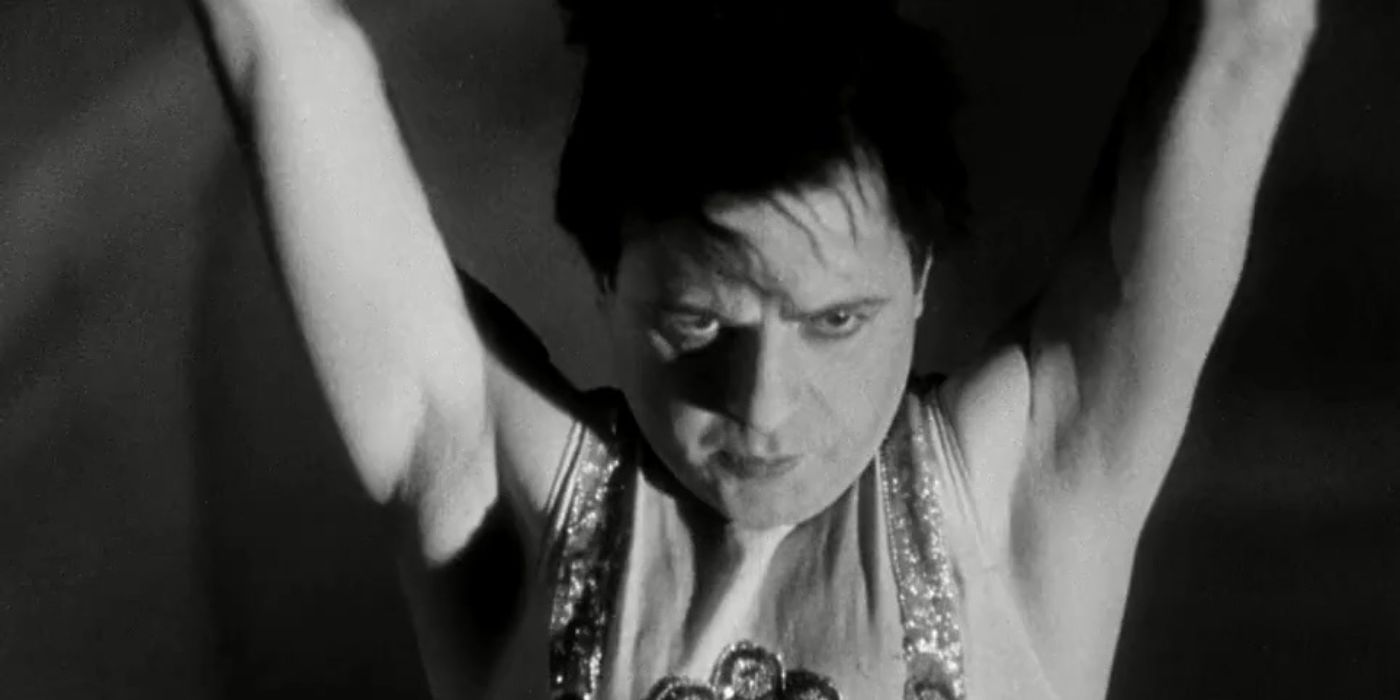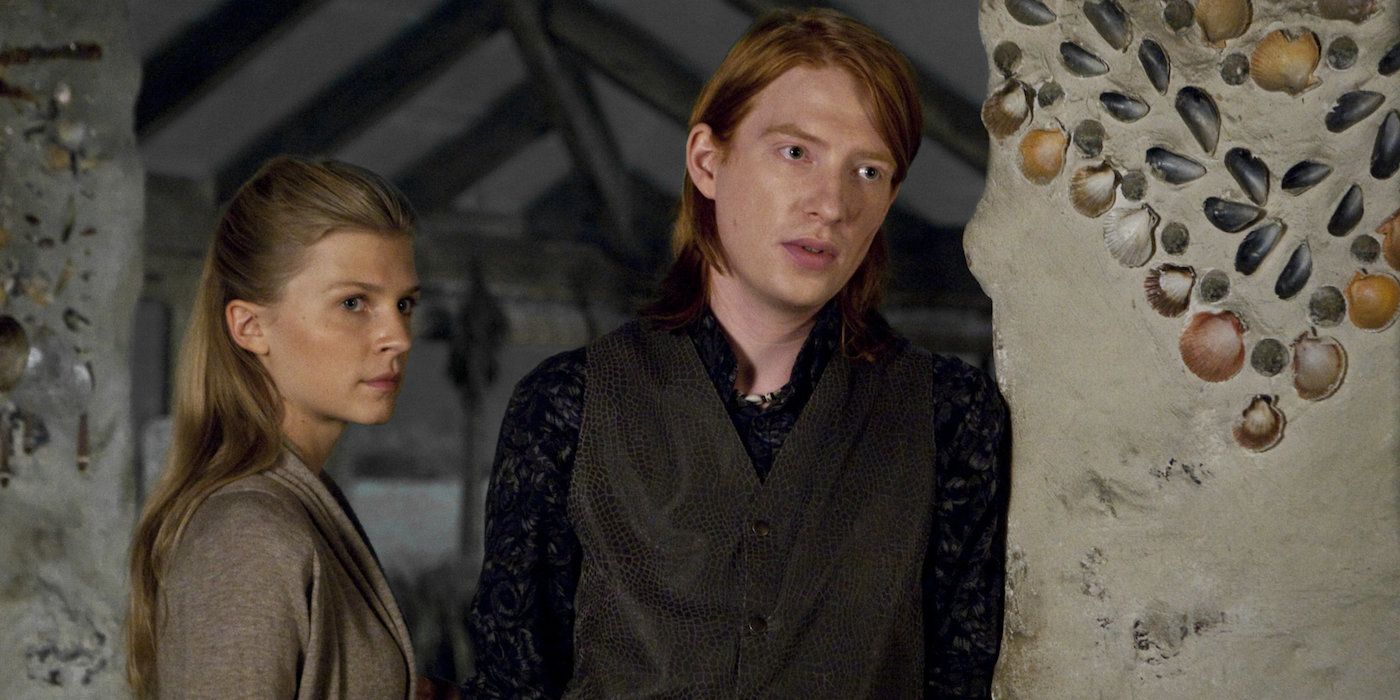This article contains spoilers for the movies discussed.
Many of Alfred Hitchcock‘s villains rank among the most iconic in cinema. There’s the sinister Mrs. Danvers (Judith Anderson) in Rebecca, the suave Phillip Vandamm (James Mason) of North by Northwest, and, of course, Psycho‘s Norman Bates (Anthony Perkins), the archetypal crazed killer. Heck, even the titular avians from The Birds are pretty unsettling. Most of these characters are frightening but also complex, with layered motivations and multiple dimensions to their personalities. They’re generally not simply beings of pure evil, a la Voldemort or Sauron.
However, not every baddie in Hitchcock’s films is on this level; indeed, even the Master of Suspense has fallen short at times. With a filmography as sprawling as Hitchcock’s, there’s bound to be a few antagonists that flopped. Either they are poorly written and ridiculous from the get-go, or they have potential but are brought down by weak performances and bad directorial choices. Whatever the reason, these are the worst villains in Hitch’s movies.
10 Mr. Krug (Eduardo Ciannelli)
‘Foreign Correspondent’ (1940)
“I could get more news out of Europe looking in a crystal ball.” American journalist John Jones (Joel McCrea) is dispatched to Europe to cover the escalating tensions in the years leading up to World War II. There, he teams up with the resourceful Carol (Laraine Day) to expose enemy spies before it’s too late. In the process, he crosses paths with Mr. Krug (Eduardo Ciannelli), an agent orchestrating kidnappings and murders.
Foreign Correspondent is an odd and difficult film to rate because it has both very strong and very weak elements. On the one hand, it’s essentially a B-movie and propaganda aiming at getting the US to enter the war. On the other, some of the suspense is handled well and there’s an impressive scene of a plane crashing into the ocean. Krug, however, is one of Hitchcock’s most boring and least intimidating spy villains. He’s one-dimensional, like something out of a pulp novel, and exists only to provide the vaguest obstacles for the protagonists.
Watch on Criterion
9 Hermann Gromek (Wolfgang Kieling)
‘Torn Curtain’ (1966)
“Strictly for the birds, huh? They still say that?” Torn Curtain is yet another spy thriller, this time set during the Cold War. Paul Newman plays Michael Armstrong, an American physicist and Western double agent who travels to East Berlin pretending to defect to the Soviets. However, East German security officer Hermann Gromek (Wolfgang Kieling) figures out the truth and tries to stop Armstrong. This places Armstrong in a difficult position, and the way he handles Gromek sets the rest of the plot in motion.
Gromek has some quirks: he’s sinister, shadows Armstrong’s every step, and relentlessly chews gum. Unfortunately, he’s not especially frightening, and his screen time is limited. The most interesting thing about him is the fact that the actor himself defected to East Germany shortly after the film was released. The whole movie is underwhelming, especially given the masterful spy films Hitchcock made just a few years earlier. The talents of Newman and co-star Julie Andrews are sorely wasted.
Rent on Amazon
8 Sir Humphrey Pengallan (Charles Laughton)
‘Jamaica Inn’ (1939)
“Poor creature, she had suffered so much, but I was forced to do it!” Jamaica Inn is one of three movies Hitchcock adapted from stories by Daphne du Maurier, the others being Rebecca and The Birds. Unfortunately, it falls far short of those famous films. The action unfolds in the Jamaica Inn, the front for a criminal operation that engineers shipwrecks to steal cargo. The villain is Justice of the Peace Sir Humphrey Pengallan (Charles Laughton), who pretends to be kind and silly but is really the mastermind behind the crimes.
Even Alfred Hitchcock called Sir Humphrey Pengallan’s behavior “completely absurd.”
Laughton’s acting is good, but the character is poorly written and, frankly, ridiculous. Even Hitchcock himself called the character’s behavior “completely absurd.” The film itself lacks Hitchcock’s atmospheric touch, instead coming across as a largely straightforward effort that qualifies more as a campy adventure than a thriller. The melodrama and awful special effects for the shipwrecks don’t help, probably the result of the film’s difficult production process. Ultimately, the director was disappointed with Jamaica Inn, notably declining to include one of his trademark cameos.
Watch on Kanopy
7 Granville (Michel Piccoli)
‘Topaz’ (1969)
“If you are doing him any harm, I will raise such hell. And you know I can.” Topaz is another Cold War thriller, this time set during the Cuban Missile Crisis. French intelligence operative André Devereaux (Frederick Stafford) uncovers a Soviet spy ring operating within the French government. He must evade the Communist authorities as he tries to bring the truth to light.
The head of the spy ring turns out to be Jacques Granville (Michel Piccoli), one of André’s old friends from the days of the French Resistance. Not only is he a traitor, he’s also having an affair with André’s wife Nicole (Dany Robin). Granville is predictable, lacking depth and nuance. He’s mild and unassuming when introduced, which makes sense since he was undercover, but he remains rather flat even in the third act when the jig is up. When his secret is exposed, he doesn’t make a stand at all but rather commits suicide.
Rent on Amazon
6 Mabel (Annette Benson)
‘Downhill’ (1927)
“Darling boy, I’ll be alone at the shop after six. Do come.” Downhill (aka When Boys Leave Home) is a silent film about a promising young student named Roddy (Ivor Novello) who suffers a series of unjust setbacks and finds his life falling apart. It all begins when a young woman named Mabel (Annette Benson) falsely claims that Roddy got her pregnant. Roddy’s father (Norman McKinnel) kicks him out of the house, after which he meets various cretinous characters who swindle and exploit him in a host of ways.
Roddy never confronts Mabel, and there’s no resolution to their conflict; instead, she serves only as a catalyst before being forgotten.
Roddy’s dad and his future wife, Julia (Isabel Jeans), are also antagonistic, but it’s really Mabel who has the most dramatic negative impact on the young man’s life. However, other than lying in the movie’s first act, Mabel hardly appears. Roddy never confronts her, and there’s no resolution to their conflict; instead, she serves only as a catalyst before being forgotten. Still working on developing the style that would eventually crown him as The Master of Suspense, Hitchcock demonstrates his knack for visual storytelling here with economical shots reminiscent of German Expressionism, but there’s nothing else really to justify a viewing.
Watch on Criterion
5 The Princess (Betty Amann)
‘East of Shanghai’ (1931)
“Love is a very difficult business.” East of Shanghai (aka Rich and Strange) centers on Sir Frederick (Henry Kendal) and Lady Emily (Joan Barry), a British couple who embark on a journey to the Far East to escape their humdrum lives. However, their plans for a relaxing vacation are soon derailed by a series of misadventures and misunderstandings, including Fred’s romance with a German princess (Betty Amann).
The princess seems perfect, but it is soon revealed that she’s a con artist seeking to rob Fred of everything he’s got. She makes off with £1000 of his money, forcing him and Emily to travel home on a tramp steamer, introducing them to further danger. Although the princess is key to the plot, the character itself is basically a cardboard cutout, a plot device rather than a real person. She’s just one weak element in a movie that feels tonally muddled, an odd mix of a silent film and a talkie, which just doesn’t work.
Watch on Criterion
4 Keane (Gregory Peck) & Mrs. Paradine (Alida Valli)
‘The Paradine Case’ (1947)
“You are not to destroy him – if you do, I shall hate you as I’ve never hated a man.” The Paradine Case is Hitchcock’s fusion of a courtroom drama and a noir film. It’s about the trial of Maddalena Paradine (Alida Valli), a beautiful woman accused of murdering her wealthy older husband. Respected barrister Anthony Keane (Gregory Peck) defends her, falling for Mrs. Paradine in the process.
The loathsome pair really deserve each other, bringing out the worst in each other despite never quite selling their devious actions.
Both characters turn out to be selfish and vile. Keane tries to pin the murder on an innocent man to get Mrs. Paradine off the hook. For her part, Mrs. Paradine eventually reveals that she did poison her husband and later turns on Keane, too, admitting she’s only ever cared for her lover Latour (Louis Jourdan). The loathsome pair really deserve each other, bringing out the worst in each other despite never quite selling their devious actions. It’s all rather melodramatic, and the performances are not great. The Paradine Case could’ve been great had the first choice for Mrs. Paradine, the legendary Greta Garbo, had agreed to star in the role.
Buy on Amazon
3 Doyle (Barry Jones)
‘Number Seventeen’ (1932)
“What an amusing man.” This comedy mystery follows a group of strangers brought together in a seemingly abandoned building known only by its address, Number 17. A dead body is discovered, kicking off an investigation, multiple deceptions, and cases of mistaken identity, all connected to a mysterious jewel robbery.
Barry Jones plays the criminal Doyle, one of the movie’s most slippery characters. Pretty much everything he says is a lie, and he later masquerades as a detective. However, Doyle doesn’t have the brains to pull off such an elaborate con. His biggest mistake is trying to impersonate Detective Barton, not realizing that he is speaking to the real Detective Barton. In other words, Doyle is not bright enough to be scary nor funny enough to cut it for a comedy. The film itself has aged quite badly and is commonly regarded among Hitchcock’s worst and most forgettable efforts.
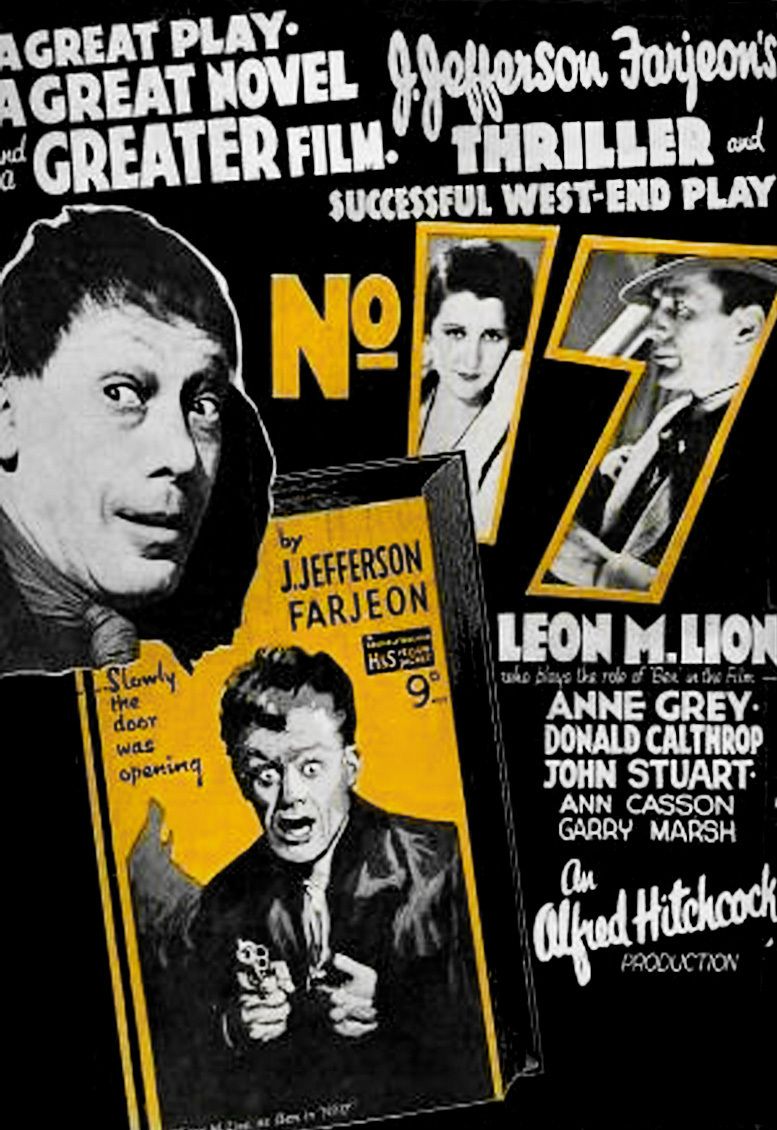
Number 17 (1932)
- Release Date
- November 7, 1932
- Cast
- Leon M. Lion , Anne Grey , John Stuart , Donald Calthrop , Barry Jones , Ann Casson , Henry Caine , Garry Marsh
- Runtime
- 66 Minutes
Watch on Kanopy
2 Levet (Miles Mander)
‘The Pleasure Garden’ (1925)
“You have no idea, Miss Brand, how empty and lonely life is out there…” The Pleasure Garden was Hitchcock’s feature debut, so it’s understandably rough around the edges. Set in the glamorous world of London’s theater scene, it tells the intertwining stories of two chorus girls, Patsy (Virginia Valli) and Jill (Carmelita Geraghty). Their friendship is tested when they both fall for the charms of the same man, the suave theater producer Levet (Miles Mander).
The film is an outlier in Hitchcock’s filmography in that it’s a romantic drama, although there are elements of murder and mayhem as well. Alas, nothing about The Pleasure Garden is very notable, although some shots and the themes of voyeurism hint at the director’s later work. Levet turns out to be the villain, drowning his mistress before resolving to murder Patsy as well. He’s driven mad by guilt, a la Lady Macbeth, but the movie doesn’t explore this very deeply. To make matters worse, Levet has ghostly visions instructing him to do so, making for a rather flimsy motivation that makes the film seem silly rather than original.
Watch on Amazon
1 Handel Fane (Esme Percy)
‘Murder! (1930)
“Mine is very nervy work, you see, Sir John. You never know what may happen.” Young actress Diana Baring (Norah Baring) is found dazed beside the dead body of another performer, with the bloody murder weapon beside her. She is placed on trial, where only one juror, Sir John Menier (Herbert Marshall), believes she is innocent and sets out to uncover the truth.
Handel Fane is milquetoast to boot, not even putting up a fight at the end and proving to be quite weak and easily disposable.
After the usual dead ends and red herrings of a whodunit, the real killer is revealed to be trapeze performer Handel Fane (Esme Percy). It turns out that he killed the actress because she threatened to expose his secret: that he has a mixed racial background and has been passing as white. Obviously, this kind of plot feels very dated now to the point of being uncomfortable, and Percy’s performance is overblown and grating. The character is milquetoast to boot, not even putting up a fight at the end and proving quite weak and easily disposable. In other words, he’s a far cry from Norman Bates or Phillip Vandamm.
Watch on Criterion

